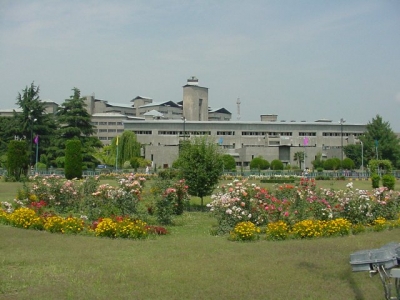Irtif Lone
No, I am not a doctor. I am just an attendant, who has spent the last week in this hospital. And, in fact I am writing this from the hospital desks. In couple of days, we will be going home but the past week has been scripted in my memory forever.
I have had the first hand experience of it all, more so because I was the attendant and not the patient. I travelled through all the corridors, lanes and by-lanes of this hospital named after Shri Maharaja Hari Singh and established in 1948.
I have been to this hospital before a couple of years back as a patient and even though I was discharged within 48 hours, after recovering from the illness, I thought of this hospital as a mess.
But, this time around I had much more time to observe things and see through it clear. And this time, it was a journey from emergency to the ward and then to the paid ward and probably the sum total of this hospital. If in the mornings you go to the casualty side of the hospital, it’s a mad rush. Almost everything jam-packed, and it is with great difficulty that you can move around. Right from the ticket counter, where you buy admission tickets or pay the charges for various tests to the long queues outside radiology waiting to get their bodies scanned for various ailments or outside labs testing for blood and human waste. And people running from one place to other. Everything is meagrely charged. Almost ten times less than what is charged outside. And if you are admitted to the hospital then you get various IV’s and injectables free of cost. What a brilliant thought it has been. Even the poorest of poor can get treated. And that for one is something where you start admiring this as a hospital.
And then, when you start moving towards the wards, one realises that with every patient you have at least five attendants. Even in the ICU, if you have some influence a couple of attendants are allowed. Even with the presence of large contingent of private security which has been hired by the hospital it becomes difficult to stop this unwanted rush of the attendants at any point of time. This in my opinion is also an occupational hazard. People here are used to force, a polite way of telling them that the visiting hours have finished do not work here. With the advent of night, you find people, some lying down, some sleeping and many others discussing anything from their internal family matters to the global political scenario.
The paid wards are cheaper than any third class hotel and almost all starting from lower middle class families can afford to occupy, not that the services are better but at least you are saved from getting trampled in the wards, and the silence is worth much more. Even though the number of rooms is very less many still remain unoccupied. If this was looked through the prism of management, it’s usually through these you could generate some good revenue. If someone can, give him a better service but make him pay for it too. That’s how good hospitals run.
And, then I many times asked myself this question, why did we come here? We could have gone somewhere else as well. But, where else do you have better emergency services than here? Where else would you find best doctors of the valley, the ones who preferred to stay of course? It indeed needs an economical and infra structural over haul, but even as it is now, it is immensely contributing to the good health of valley. And, today I think of it as the life line of the valley, no matter how badly run, daily thousands of people visit the hospital as patients and most of them go back healthier.















